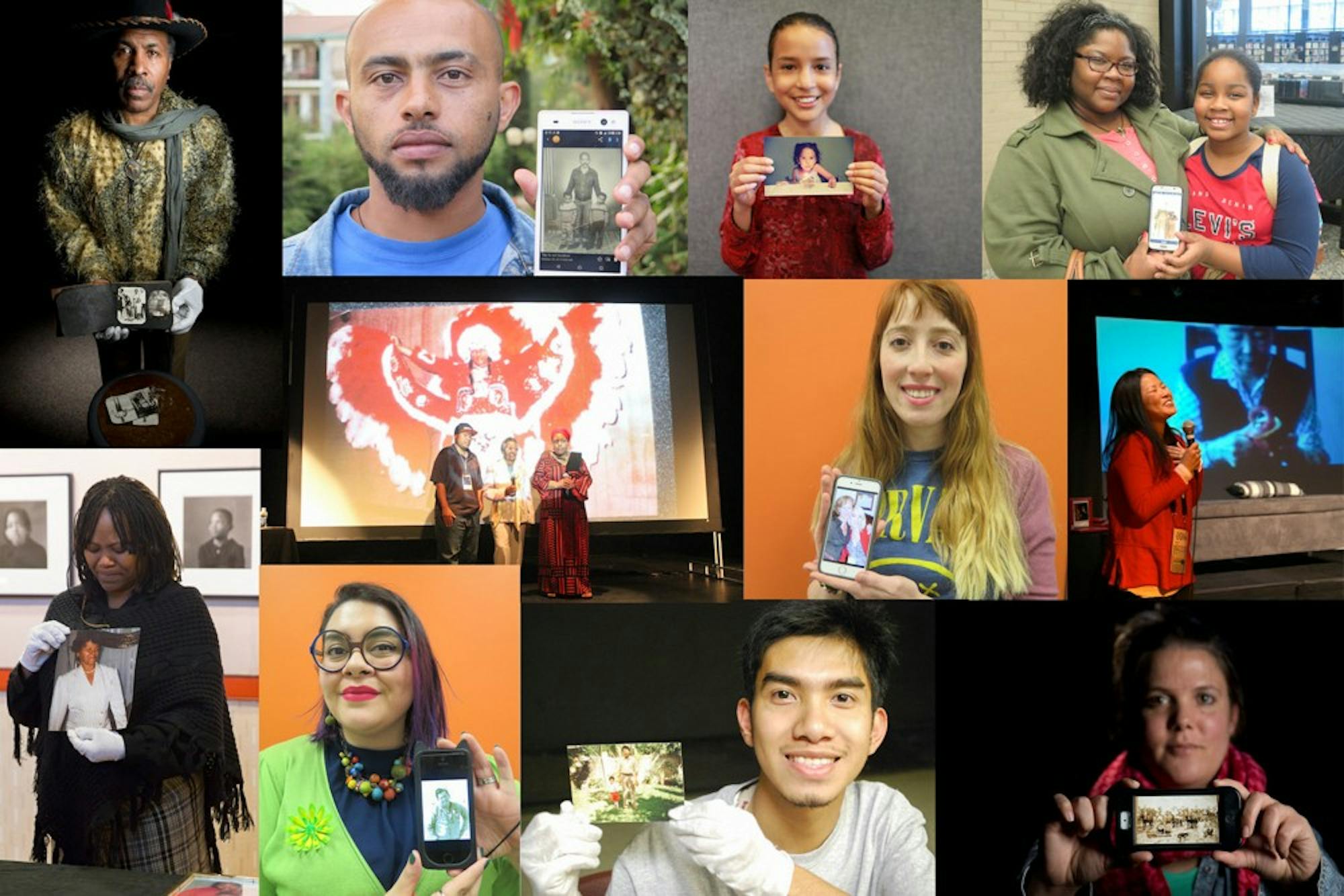Award-winning director and filmmaker and current Montgomery Fellow Thomas Allen Harris will bring his Digital Diaspora Roadshow to the College next month. The piece, a companion transmedia project to “Through A Lens Darkly: Black Photographers and the Emergence of a People,” focuses on promoting audiences to discover connections between their own family archives and the film’s historical narrative.
The Montgomery Fellowship Program, established in 1977 through gifts from Kenneth Montgomery ’25 and his wife Harle Montgomery, seeks to enrich the experience of Dartmouth students in the classroom primarily by bringing distinguished individuals to the College to live at Montgomery House varying from a few weeks to a full year.
Harris’s company, Chimpanzee Productions, Inc., is dedicated to producing audio-visual experiences that focus on themes of identity, family and spirituality. His work also touches on personal archiving and using media for social change.
Harris’ feature film “Through a Lens Darkly” will be shown in Loew Auditorium on May 5, followed by a discussion with Harris.
Harris said that the 2014 film was inspired by African-American photographer Deborah Willis’ “Reflections in Black: A History of Black Photographers 1840 to the Present” (2000). In the film, Harris’s own family photos are interspersed within a narrative that ultimately includes 954 photos. These photos, however, were only a fraction of the 15,000 photos Harris collected from various archives around the world while working on the film, he said.
Harris is currently working on the Digital Diaspora Family Reunion roadshow. Harris will bring the show to Dartmouth in May, where he will preside for two hours over a digital production featuring family photos that will be as “diverse and meaningful” as the type and number of people he hopes will attend.
As a part of his fellowship, Harris also previously held an event where attendees told stories about family photos they brought to the event.
Ian Frey ’19, who attended the event, said that he was surprised at how meaningful it was to just share simple pictures of his family with other people.
“I was struck by the similarities between everyone’s family photos,” Frey said. “Either during the holidays or on vacation, even though every family obviously looked different, in a way they all looked the same.”
Harris said the roadshow gatherings are visual experiences that bring strangers together while breaking down boundaries through the photos’ commonalities.
Harris delves into his “artistic passion” of exploring what family means for all of us through his roadshow gatherings. Harris reflected on his time abroad, noting that his understanding of family reaches beyond the traditional nuclear family.
“For me, family is about the families we choose,” Harris said. “What I want to do for Digital Diaspora is to have all of us look at each other, not exclusively through the lens of race, ethnicity, nationality, but as family members — I think that creates a one family album.”
His own family led to his interest in photography. Harris’s grandfather constantly took photographs, sparking his exploration of the medium. His grandfather’s house had a darkroom in the basement, which he started working in when he was a kid initially under the instruction of his cousin James.
Later in life, two photography classes in his senior year at Harvard University persuaded him to forego medical school for a career as an artist and photographer.
After working as a writer for Children’s Television Workshop and producing in public television, Harris realized he needed to do more personal work. As a result of this realization, Harris later started making experimental films.
Harris said that part of the Digital Diaspora Roadshow raises the question of, “What is going to happen to the family album as we are moving to images from cellphones?” Harris also wants to unearth photos not usually depicted as the typical American family, to ensure equal representations of all variations of the American family.
“Pictures of African-Americans from earlier times are rare; daguerreotypes of African-Americans go for thousands of dollars on eBay,” Harris said. “Students in high schools, junior high schools, elementary schools, they don’t get a complete visual history if these photos are left in rarefied family albums, or collector’s glass cages. These images provide another idea about the American family album.”
Harris said that the Montgomery Fellowship gives him the opportunity to be in one place for an extended period of time. Since he finished “Through a Lens Darkly” two years ago, he has been traveling around the clock to countless places around the globe, including Belgium, Italy, Japan and Ethiopia as well as throughout the United States
After the end of his fellowship in June, Harris will be teaching a course called Visual Memoirs at Yale University in the fall.




